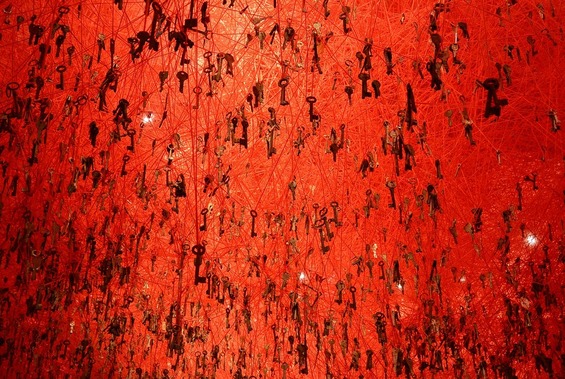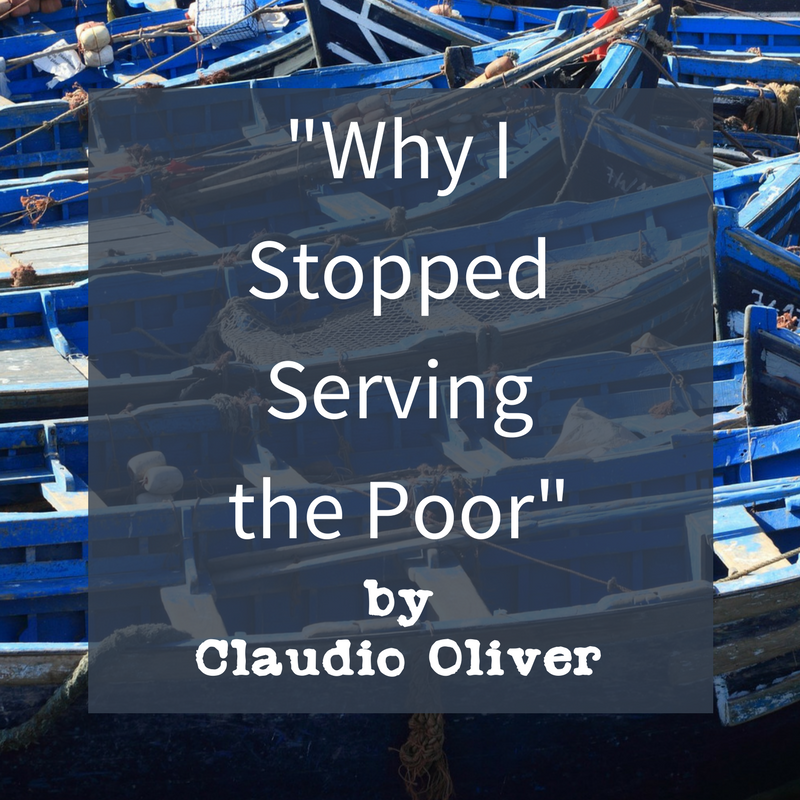 Last week, I felt like quitting being a writer. So here's an advice list to myself and to current and future writers - a list of directives I wish I knew years ago and am still actively learning. 1. Don't wait till you're famous to lift other writers up. Do it now 2. Find a community of writers to deal w/ the waves of what writing and publishing bring, & if you don't have access to a community of writers, make friends w/ individual writers 3. Don't plagiarize anyone EVER 4. Don't let anyone plagiarize you or another writer. If you see it, say something 5. People will still get famous plagiarizing others, don't choose that path—yes it's a choice 6. People will criticize and condemn. Don't drown out *all* the criticisms, but draw lines 7. Listen to critique, filter if it's warranted, and if it is, do better, be better. It will make your voice stronger and your solidarity authentic 8. If it's not warranted, try your best to be compassionate, understand that everyone has wounds; if it comes in torrents, block it 9. Editors are amazing people. If you struggle with what they say at first, walk away, feel all the feels, then come back and look again with a level head & a warrior heart. Stay true to your voice, but know that your best voice needs community 10. Go to a therapist, if possible 11. The publishing system is broken, do what you can to reroute it. Share your platform, refuse events/interviews that will bring you fame/$ but are unjust. Recognize that publishing is not AT ALL immune to racism, classism, & sexism 12. Not all famous writers are rich 13. Famous writers aren't always good writers, some are 14. Comparing yourself with others will come. Figure out ways that work for you to silence those voices, or positively engage them 15. You are more than your writing 16. You are more than your published work 17. Even if you never publish anything again ever, you are enough 18. Find economic hacks if you need to: use Amazon's Look Inside as a library, get books from the library for research, send a message to the author & see if they'll send you a free copy 19. Ask yourself, is it worth writing this if only one person is affected? Yes numbers count in the current system, but they don't have to count in your heart. Get others to remind you of this, regularly 20. There's only as much room at "the table" as we, in our biases, actively make! 21. Marketing sucks, but it's part of the system. Ppl will say you don't have to do it, but you do. Famous ppl will talk about how dumb it is, & it is, but you still have to do it 22. Don't dehumanize other writers, don't assume they haven't gone through shit to be where they are 23. You are important, your voice matters. So keep working hard 24. Rejections will come, it's more important how you deal with them than how many you get 25. Find rhythms to get off social media so it doesn't suck the life out of you 26. Take hold of that which brings you joy.
1 Comment
The full responses from church & ministry leaders from my article at Missio Alliance. Thank you to each of these leaders for responding.
I asked three questions: 1.How does Ahmaud Arbery’s unjust death and lack of prosecuting his killers affect black Christians? 2. What do you wish you could tell white evangelicals without feeling judged by them in your reaction to this most recent case? 3. How should the American Church respond? A First Lady from Nashville, Tennessee, said, “Ahmaud Arbery’s unjust death and the lack of prosecuting his killers has made the black community feel enraged, disheartened and disappointed. My timeline has been filled with cries of ‘not again’ and ‘how long O Lord.’ I lament that racial trauma has become all too familiar in our existence here in America.” A worship leader from Kannapolis, North Carolina, said, “For me personally the affect comes with feeling as though we don't matter! That our lives are perceived as so insignificant, that justice isn't even deserved. However, I'm called as a Christian to have to reconcile and forgive, and honestly, it creates an inner tension because of the injustice. I have to be intentional in not allowing the same hatred that lives within Ahmaud's killers, to take residence in my heart. It’s hard and it requires me to be intentional! The American Church should respond with lament! It should also utilize its voice to influence and direct culture surrounding these injustices when they occur. What it cannot do is continue to be silent and let a few voices speak for the majority; IT MUST STAND UNITED FOR JUSTICE and be the Imago Dei! I would say to white evangelicals, my lament, my anger, my frustration, my being tired, is something you will never understand! So don't tell me how to feel in this moment or explain to me that you’re not racist. Allow me to process these emotions and to embody the scriptures that say mourn with those that mourn! Don't minimize the pain that the black Christian community experiences by seeking to provide explanations as to why it happened or what caused it to happen. Finally, if you're choosing to be silent, during these times don't get upset with those who chose to be LOUD.” A lead pastor from Charlotte, North Carolina, said, “Tonight I cried in my wife’s lap as I had to have the talk with my sons again. The talk isn’t about how to treat women or how to be a man but how to avoid being killed. Each word measured and balanced but the serious of the moment was not lost. I kept repeating, not to make you afraid, but aware. My 13-year-old son attempted to process it. My 18-year-old son was hearing it again. His eyes never looked away from mine. My wife listened. She allowed me the liberty to be brutally honest. Years ago, I avoided talking to my youngest about the unarmed black man killed in Charlotte. I refused to rob him of his innocence until one day while driving to the store, a police car pulled up beside us and he said, ‘Dad, I am scared.’ When I asked him why, he said, ‘Police kills black people.’ He was 6 years old when Jonathan Ferrell was killed. I gripped the steering wheel and told him that he did not have to be afraid. I lied. Jonathan Ferrell was killed walking distance from our home in East Charlotte. I thought he was too young to understand it, but his friends told him on the playground. Their parents thought it was necessary to tell their young black sons what I was afraid to tell my own. I wasn’t prepared then, but sadly I’ve gotten better over time. Each year I’ve had the talk with them. Not the gentle reminders that parents tell their children about wearing a helmet on bicycles or wearing their seatbelts when driving. The names are too many. The images are seared in my brain and now like many black fathers, I’ve passed the realities to my sons. Again, I tried to remain balanced by speaking of justice, the evil of men, and point them to Jesus. But it’s not easy when I try to answer the question of why this continues to happen? Now as the talk is repeated and I have become a pseudo-expert once again explaining reactions, racism, and realities; the looks on my sons’ faces hurts me to the core. How can they be judged by melanin? I spoke to them using examples of my white counterparts assuring them that we all have something; this happens to be ours. The words are empty. They know it. The cancer of racism isn’t just a world problem but a church one as well. When our predominantly black church merged with a white church during the Trump era, my sons witnessed me sandwiched between two worlds. They witnessed me skirt the Keith Lamont Scott issue as I attempted to bring two cultures under one umbrella. I won’t do that again. I’m tired of folks weaponizing my blackness. Tired of the church excluding racism to ‘ensure the purity of the gospel remains’. Tired of editing posts to make sure I’m being balanced. Tired of being labeled angry when I’m expressing myself. Tired of waiting for justice. A minister of Christian education at a Baptist church in Kansas City, Missouri, who sits on several boards, said “Such events, that happen frequently, is like being mercilessly and repeatedly bullied; it's like perpetually hitting your head against a brick wall; it's like being trapped in the Twilight Zone. Such events seem to reinforce the idea that there are two Americas: one for whites and for everyone else. For many African Americans, this twenty-first century scenario is the continuation of an insidious narrative: white man feels victimized, fears for his life, and is justified to physically or emotionally assault the Black body with impunity. The continuation of this narrative traumatizes African Americans which seems to sequester our voice; the continuation of this narrative makes us angry, cynical, and hopeless. Some lose the get-up-and-go to continue crying out and standing for justice. This trauma is not inconsequential because epigenetics teaches us that the daily trauma that African American females experience is passed on to their babies in utero. This trauma alters the fetus such that as fully-grown adults they suffer from such maladies as hypertension, diabetes, and coronary heart disease. Epigeneticists have found the same maladies in Holocaust survivors and their descendants. The American church must be dutiful to learn about African American history as African American history is world history. The American church must publicly renounce the ideology that animates this type of behavior: white supremacy. The American church must address this deep-rooted sickness of racism from the pulpit and in the classroom. The American Church must develop discipleship initiatives that address racism in this country and the concomitant behavior. The American church must lament such unjust acts against imago Dei bearers. The American church must then launch into action, to stand for justice, and to reform social institutions like the criminal justice system and education. The American church must love her brothers and sisters, as herself, by standing for justice. White evangelicals love and serve the same God as African American Christians. This same God loves justice and hates injustice. This same God calls us to love our neighbor as ourselves. This same God demands that our epistemology inform our ethics; to know God’s word is to do God’s word. Do my white brothers and sisters love justice and hate injustice? Do my white brothers and sisters truly love their neighbor?” A writer from Brooklyn, New York, said, “Ahmaud’s death is another nail in the backs of black people in America. Black Christians especially, have to figure out how to cope with yet another tragedy as we wrestle with the truth about the goodness of our God. It is now a question of why evil happens but why does it keep happening to US? I wouldn’t dare presume the feelings for all black people, but I think it is safe to say that we are tired. The American Church needs to take to the streets. She should be on the frontlines and leveraging every bit of her power socially and politically to make something happen. When it comes to abortion and same-sex marriage you will find Christians in the ears of politicians, why can’t they put that same energy to seeing other people made in the image of God be protected too? The worst part of this has been all of the texts and calls I’ve received from white Christians who are praying for me and feel for me. Do their hearts not break over this? Do they not feel the pain of injustice in their bones? Why is it just me? We have had enough of thoughts and prayers, it is time to put your money, time, and power where your mouth is. I have nothing left to say to white Evangelicals. We are here again because of their silence and refusal to value what Jesus values.” A children’s church director from Georgia, said, “Remember how we as Americans felt on September 12, 2001? There was this collective grief and horror at having watched innocent human life taken right before our eyes. There was anger and a desire to make someone pay as we looked at our children and tried to make them feel safe, grasping for words to explain to them how something so evil could have happened. That sick feeling of powerlessness and rage is something that the Black community re-lives every time we have to mourn another son or daughter like Ahmaud Arbery. We feel those parents' pain deeply and personally - over and over and over and over again. Since Trayvon Martin, my body has developed some uncontrollable physical responses to stories like this. It is emotionally exhausting and traumatic. Unequivocally and quickly. There is no reason to condone vigilante justice by ANYONE. Don't entertain the tired rhetoric that will be trotted out about how the young man deserved or brought this on himself. Shut down any efforts to assault Ahmaud's character as completely irrelevant, because it is. React to Ahmaud's death the way you would if your blond-haired blue-eyed track star nephew had been gunned down by these non-existent immigrant thugs some of y'all were so afraid of. I know that our family of faith bond is deeper than race, ethnicity or culture, but on some days when I have to watch White Christians do this nonsense, I don't want to see or talk to ANY of you. Being angry and lashing out is something I may need to do privately, but I'm learning that it rarely gets me anywhere publicly. Sometimes I need a minute, so you may have to either give me some space or get an earful. BUT - you can definitely be talking to people other than me! I need to know that while I'm wrestling to keep it together, you are brave enough to speak out in the public square and call out the injustice and take on the failures in dominant culture. I'm watching to see if you are pretending like nothing happened. You don't have to take on every case, but surely to goodness ONE of these stories ought to move you to righteous indignation. An author and ministry co-founder from Ohio said, “I would tell white evangelicals that they hold part responsibility because they continue to support a man in the Oval Office who is blatantly dividing America. White men, especially, are freely carrying AK47s walking the streets and shouting that they have permission from their president. I’ve heard these words with my own ears. If we had evangelicals following Jesus and not their heart for a Supreme Court nominee solely focusing on pro-life when it comes to abortion, we may not see some of the ugly that is taking place, which is threatening black and brown people.” An elder and Bible teacher in Western Maryland said, “It affects black Christians because it makes us struggle with Christ’s command to love our enemies. The American Church should respond by acknowledging, addressing, and preventing the racism that’s prevalent in our country. Everyone needs to check their hearts. Do their beliefs align with God’s word? Why do certain segments of the Christian church think it’s ok to kill people? I wish I could tell white evangelicals that sending out a hunting party isn’t ok. Those types of actions are NOT from the heart of Christ. Stop defending that behavior. I’d also like to invite them to get to know black people. I’m sure they’d love us." |
Gena's
|

 RSS Feed
RSS Feed

